Communication for Your Family During a Disaster
Today it’s all about communication for your family during a disaster. We take so many things for granted every single day, and communication is certainly one of them. You just never realize how critical it is until an emergency hits your area. Being without it is a lot like being caught out in the dark and unable to see where you’re going.
When you’re not able to reach your loved ones to see whether they’re okay, let alone alive, it can create a lot of fear and anxiety, which could cause you to make some wrong decisions. In case you missed this post, Reverse 911 Emergency Notification System-Please Sign Up Today
Being able to stay in contact and able to communicate with others will take a lot of burden off of your shoulders, especially during and following a disaster. You’re already dealing with enough as it is. These are several forms of communication that your family should consider before an emergency take place.
Related Topic: Emergency Forms of Communication
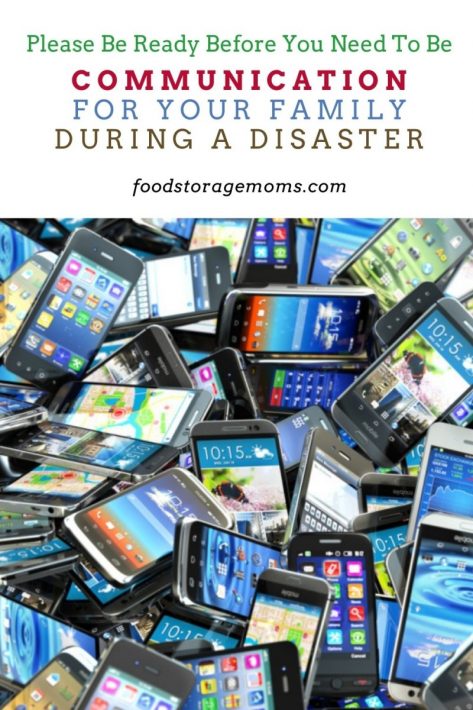
Communication for Your Family During a Disaster
Have a Calling Tree In Place
This one has been around forever, but it works wonderfully still today, before, and following a disaster. A calling tree works when you have an out of the area or state contact that you can reach out to and relay information regarding how everyone is doing. With the tree, each family or close friend is assigned certain people to call when the emergency takes place, and they pass critical information on.
This is helpful when you have extended family that live in your area that you’re unable to reach or know their condition. As long as everyone is checking in with the out of state contact, you can know where and how they are doing, while you are managing your emergency. This is one of the easiest ways of communication with your family during a disaster.
Social Media Platforms
News travels faster than ever before, especially thanks to today’s social media platforms that keep you connected with friends and loved ones. Facebook and Twitter are among the most popular ways that can keep you in touch with people on the other side of the world.
If a disaster were to ever strike your area, be sure to have a social media account so that you can let your family know that you’re okay or how you may need assistance.
Did you ever hear how Twitter was able to alert its users before the earthquake seismic waves even reached them, in both Japan and Virginia back in 2011? Isn’t that incredible? Social media has been used to save lives so many times.
Cell Phones
Cell phones are a great tool to have following an emergency and most people have one these days. Even if you’re having difficulty reaching somebody with a call, you also have the option of texting when you’re experiencing a low signal.
The downside to cell phones is that you can’t guarantee that your carrier or power grid will be up and running when you need them. There will also be more people trying to use them following a disaster and you may have a harder time getting through. Thank goodness that doesn’t happen often these days with all the modern technology available.
When the power has gone out, many people have a hard time keeping their phones charged, so think of ways to keep yours going, such as a solar charger. Also, keep in mind that you can use a car battery to charge the phone.
2-Way Radio (Walkie talkies)
How would you stay in contact with your family if you become separated or have to venture out for some reason following an emergency? Staying in contact with your immediate family members is also something that you should think about.
A 2-way radio can keep you connected as long as you’re within a 4 to a 6-mile radius, but if you have flat ground and optimal conditions, they can reach further than that.
Amateur Radio Service (HAM)
The HAM radio has been around as early as the late 1800s, but it’s still going strong today. It works exceptionally well during an emergency, while providing you with higher wattage. With the Amateur radio service, you will be required to get a license that is $14, but you have the convenience of it lasting for 10 years.
There’s also an entry fee that’s between $35-$60 along with testing that involves around 9-15 hours of studying. Be aware that they do take power to run, so study up and have backup power options in place.
Citizen Band (CB Radio)
Citizen band radio is a form of communication that has been used ever since the end of WWII. They don’t require a license to operate and are still easy to get your hands on. They typically can reach up to 4 miles on its AM stations, and 20-30 miles on its SSB, but this depends on the terrain and your area’s conditions.
They do have their disadvantages though. Not only is the antenna extremely long, but the noise and interference at times can make it difficult to understand one another.
General Mobile Radio Service (GMRS)
With a general mobile radio service, you’ll have access to 23 channels that use the UHF frequency, with a range of right around 6 to 12 miles. It does require an $85 license that’s good for 5 years.
Its licensed users must be at least 18 years of age, but it works for the whole family. Keep in mind that it will cost you between $40 – $80 for an entry fee as well.
However, if you use the FRS channels on a limited basis and only a maximum power of ½ watt, you won’t be required to have a license. The general mobile radio service does experience interference at times, especially when more people are using it and it’s limited channels.
Communication for Your Family During a Disaster
Final Word
You’ve probably heard the saying, “communication is key?” Well, it turns out, it’s true! An emergency can be scary enough on its own, but with the uncertainty of not knowing whether your friends and loved ones are also okay, it can cause even more stress and anxiety that you certainly don’t need.
Which of these forms of communication will you consider using following a disaster? Or what are some other ways that you plan on staying in communication with your family or others? I’d love to hear from you. May God Bless this world, Linda.
Copyright Images: Cell Phones Deposit photos_61447269_s-2019

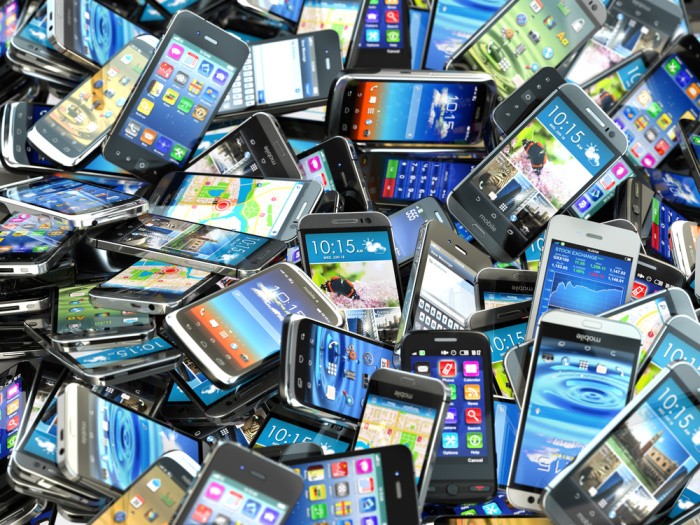


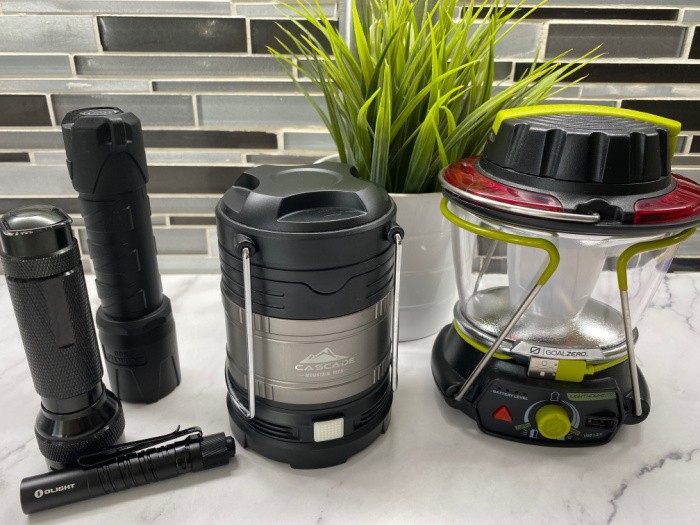

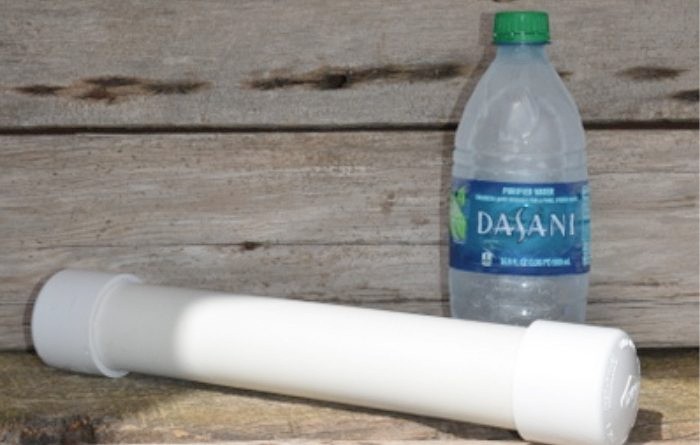
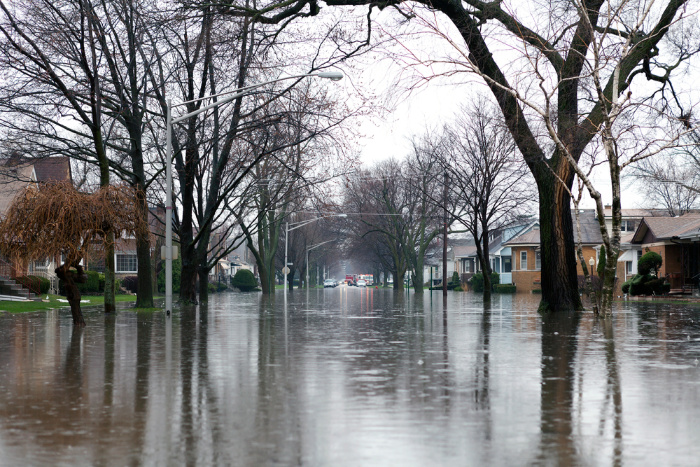






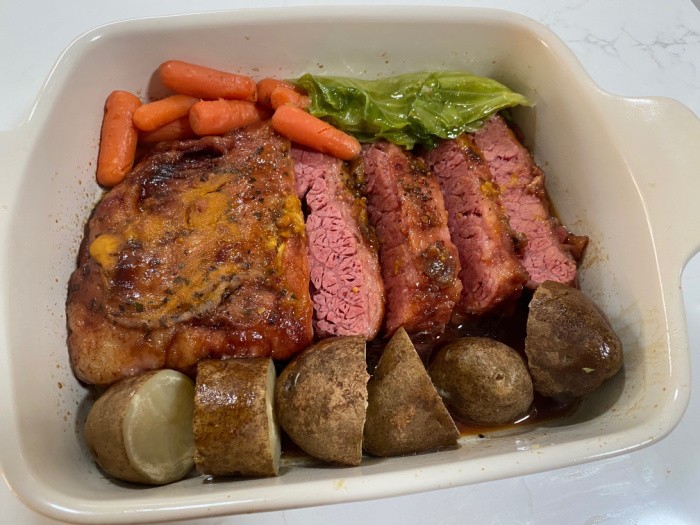


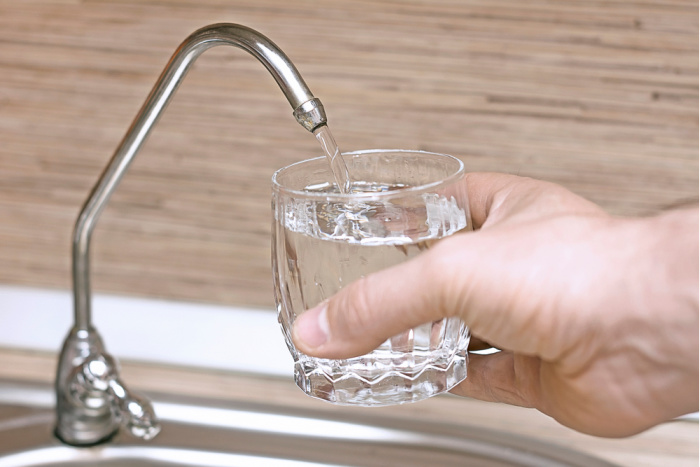




I have some FRS walkie talkies for use post event, but my wife and I don’t live within an hour (car distance) of family, so we don’t have any serious plans on how to reach out to them if there is a major breakdown of the cellphone networks. But I’ve let everyone know that if the cellular networks become congested, sending SMS text messages is the best way to get a message through since it’s a low bandwidth protocol that can store and forward within the network. Of course if there is a complete loss of the grid, then cell networks will drop rapidly as their backup power runs out….
My father is a HAM operator, but I haven’t taken the time to get my license yet, nor have I setup the gear to let me communicate with him over the distance between us. It’s on my to-do list, but for some reason I haven’t done a lot this year to add to my preps….wonder why. 😉
Thanks for these great articles! Hope you and yours are keeping as safe as you can.
Hi DmWalsh, I’m with you on every sentence! I have had that darn HAM radio book on my shelf for at least 8-10 years. I’ve heard it’s easy because we don’t need to learn Morse Code. But for some reason, I’m dragging my feet. I just need to do it. LOL! Thanks for your kind words, my friend. Linda
If I use a HAM without a license they say they will track me down and give me a ticket. Ok cool, I’m stuck in my storm shelter I would really appreciate if you would dig me out to issue that.
If an alien Godzilla is stomping a mudhole into my world and I decide to call for help and some nerd Ham guru triangulates me and shows up I’ll feed him to the creature first.
If an Army is invading America and I announce it on the local clubs repeater to warn everyone within listening distance are you really gonna drop it all and come find me?
Hi Matt, oh my gosh, you always make the best comments! This comment is truly commonsense! Thank you! Linda
This is really important information! Thank you for sharing.
Hi Tiffany, it’s all about being prepared for the unexpected. Stay safe, Linda
Most of our family does have cell phones. We live within 30-40 miles of all our children. We both have sisters that live 300 plus miles away. We keep in touch with cell phones. Our home phone is a Verizon wireless. Less than $25 a month, and no long distance. But, we only have one phone that works with no electricity. It’s what we call our landline. Or tethered phone. It’s not a cordless line like all the others. Communication is extremely important to me.
Hi Deborah, I agree with you. I finally dropped our landline. I was getting ribbed by my kids and grandkids. PLUS, it was so darn expensive. AND we were only getting sales calls. I finally talked my husband into dropping it. We have never looked back. Once I saw that Century Link got hacked and no one could use their home phones or cell phones, I cut the cord. Stay safe, Linda
We have call blocker on our phone. If the phone number isn’t on the list it blocks the calls. I think hubby got it from Amazon. It’s stopped so many Spam calls.
Hi Deborah, wow, I wish I had known about that for my landline. But I got rid of it. Great tip!! Linda
Zello app uses internet rather than cell signal. It makes your phone into a walkie talkie.
It’s more reliable during emergencies when everyone clogs up the lines.
Hi Matt, oh I forgot about that one!! Thanks for the reminder!! Linda
I often visit family in an area where there is no cell service at all! But, I can send and receive text messages on my cell phone. So we have to keep that in mind! Even if my phone doesn’t show that the text message was received on the other end (think it shows “seen”) I feel more confident that it will go through as it has before.
Since Western Washington has been “gearing up” for THE BIG ONE for a while, my daughter and I have worked out a text message code for emergencies. We use both alpha and numeric codes. So even if the normal cell service goes down, we will use quick text messages – 3-6 letters or numbers to get our message out to each other. We also worked out that if we get a message with one of our codes, we are to respond quickly if possible and follow our plans. It isn’t elaborate by any means but… Also, we have discussed at length what to do if we don’t receive or cannot send messages and where to meet in the emergency situation. I guess you could say that we have a communication plan in place before we need it and while we haven’t “practiced” it, we have the plan worked out.
So, living in an apartment has its pros and cons when it comes to communications! I don’t think I could ever have a HAM operation! Don’t they take a huge tower like antenna? CB might also not be a possibility for the same type of reason. So, with my daughter, having a plan in place has been sort of a relief! Knowing that we might not be able to communicate at all but knowing what we need to do in the event of an emergency is a relief!
Hi Leanne, great plan with your daughter. I live too many miles away from all family so I get a bit nervous. But they are all prepared, they know what to do. But as a mom, I need to KNOW they are okay. Wow, God bless all of us. Linda
My daughter lives 70 miles away. Unfortunately, if something BIG happens, there is likely no way I would be able to get to her nor her/husband to me. So our code is to head to a specific place to meet – the place is not between us but further away from what is going on. Of course, neither one of us would know if we got the message and/or if we survived the BIG one if we cannot meet up. Anyway, it is a plan and we are both hoping we can execute the plan should the need arise.
Hi Leanne, wow, I love hearing you live rather close to your daughter. An emergency would change that. My kids live 270 miles, at least the closest ones. I love the names of your grandkids, or my gosh, I saw them with the matching pajamas!! So cute!! Making a plan is critical and you have done that. Linda
Many years ago I had cell phones that could work as walkie talkies if cell service was down or low. At the time, only one cell carrier reached my home, and if we went down to my woods, lake, no service at all. We lived in a Dead Zone. But these phones with walkie talkie worked on our property. They probably still work, are stored in my drawer, lol. Don’t know if they’d work using a solar charger so I just hope I’d never have to try to use them. My carrier did not want them back once smart phones came out.
Hi Wendy, wow, those would be nice! I have some walkie talkies and I’m still trying to get neighbors to get some so we can communicate with each other. I got two other families to buy them, no one thinks we will have a Pandemic, Disaster, or whatever. Little do they know. LOL! Stay safe, Linda
Linda, well, at least you got a couple neighbors on board. Have the others Not noticed our current pandemic?!? Maybe they think a pandemic means people dropping over dead in the street? Others just leaving them lying there? Whew, sometimes I just think a head slap is justified. I only have the 2 walkie talkies, but just checked them. They work! You and I have discussed before what would happen if the grid went down. Instant Communication is key to our lives, much more so than at any point in your and my history. Sometimes I think of the novel ‘The Postman’, later made into a movie with Kevin Costner. With this pandemic, nobody in my family travels, so we’ve been really using the post office. Uh oh,I might have to write a piece for your fb page.
Hi Wendy, I love it when you write stuff in our FB Group! Now, I need to see if Netflix has the Postman! Love your comment! Linda
Hello, Good People,
Several comments:
1) Matt, you’re probably aware that the FCC rules are pretty much waived in the event of emergencies. Also, as Linda pointed out, getting your Tech Level operator’s license is a fairly easy exercise.
2) Leanne, antennas for the handheld transceivers (HTs) can be less than 2 inches long. Better performance can usually be had with a longer antenna, still under 1 foot long. Magnetic antennas for cars are from 1 foot to biggies at 4 feet long.
3) Be cautious with CB. Human vultures too often are monitoring the waves & looking to victimize people requesting assistance.
OK, that’s off my chest.
Several companies are offering a combination of smartphone + HT. They’re a bit spendy (pushing 1 kilobuck), but so are new smartphones. Here’s a link for an example:
https://www.gigaparts.com/rfinder-b1-ht-radio-android-dmr-and-fm.html?gclid=EAIaIQobChMI2pyTopDD7QIVlRh9Ch0fLAmyEAQYASABEgJ-I_D_BwE
A little more to think about:
a) Land line phone systems, like cell phone towers, have battery backups usually good for about a week, depending on traffic. Some may have generators or solar in addition, but I wouldn’t trust my life relying on phones to making long-distance communication with an extended grid-down condition.
b) HTs usually rely on ham radio repeaters on mountain tops or tall buildings for reaching much longer ranges than talkie-to-talkie capability. These repeaters are funded & maintained by individuals & clubs with finite funds. Some have very sophisticated power backups; some don’t. Online listings of these repeaters can be researched to see which repeaters have power backup & which don’t. If you use these repeaters, a small periodic contribution to their owners would be well received for their electricity consumption & maintenance.
c) Speaking of mobile radios & antennas, a very nice roll-up antenna for your BoB or vehicle can be home-made or purchased. They’re known as J-poles, & you can make them out of old TV twin-lead. If you’re in an apartment or have a nazi HOA, they’re pretty concealable, too. Here’ a link for you do-it-yourselfers:
https://www.arrl.org/files/file/Public%20Service/TrainingModules/jpole-dual-band.pdf
As ham radio operators wish each other the best: 73s.
Hi Bev and Gary, you know I had heard the antennas were shorter but I did not know they had gone even shorter than I could imagine. WOW, even the HOA might not see mine if I get one. Great information!! Thank you!!!!! Linda
Hi,
I have family in two different states. What is the best way to communicate with them if our cell phones are not working. I have some family in the same state i live in that I can buy some Walkie Talkies, however, parents and sibling are in different states. What do you recommend?
Hi Ruthie, I’m in the same boat as you. I have family in different states. The problem with walkie talkies is the distance between home to home. Most do not really go over 1-2 miles. I remember when my daughter lived through an earthquake in California. Not a bad one, but we could not communicate. EVERYONE was trying to call family and friends. I finally sent a text hoping it would go through at some point. It did, but if we have a major power outage, the only thing that will work is HAM radios, at least that’s my understanding. I’m working with someone right now on a class for communication. It’s not coming soon enough for me. But he has the expertise. God help us through this mess right now. Stay safe, stay tuned. Linda
Hi Linda,
Thank you so much for replying! Yes, I’ve heard the way to go is with HAM Radios. With everything that is going on, I’m hoping we can get something to communicate with our families. I appreciated your response and love your site!!
God Bless,
Ruthie
Hi Ruthie, thank you for your kind words. Hopefully, we will find something that is affordable and will work for us. Linda